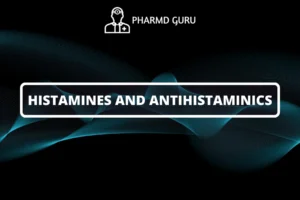Psychotropic drugs, also known as psychiatric medications, are a diverse group of medications that are primarily used to manage mental health disorders. These drugs play a crucial role in helping individuals achieve better mental well-being by alleviating symptoms associated with various psychiatric conditions. In this article, we will explore the different classes of psychotropic drugs, their mechanisms of action, and their common uses in the field of mental health.
SCROLL DOWN TO THE BOTTOM OF THIS PAGE FOR ACTUAL NOTES.
TABLE OF CONTENTS:
- Introduction
- Types of Psychotropic Drugs
- Mechanisms of Action
- Indications and Uses
- Considerations and Side Effects
Introduction
Mental health disorders such as depression, anxiety, bipolar disorder, schizophrenia, and others can significantly impact a person’s thoughts, feelings, and behaviors. Psychotropic drugs help in managing these conditions by targeting specific neurotransmitters or brain receptors, thus restoring balance and improving symptoms.
Types of Psychotropic Drugs
There are several classes of psychotropic drugs, including:
- Antidepressants: These medications are used to treat depressive disorders, anxiety disorders, and certain other conditions. They work by regulating the levels of neurotransmitters such as serotonin, norepinephrine, and dopamine in the brain.
- Anxiolytics: Anxiolytics, also known as anti-anxiety medications, are prescribed for the treatment of anxiety disorders, panic disorders, and social phobias. They act on the central nervous system to reduce excessive anxiety and promote relaxation.
- Mood Stabilizers: Mood stabilizers are primarily used in the treatment of bipolar disorder to regulate mood swings and prevent episodes of mania or depression. These medications help in balancing neurotransmitter activity in the brain.
- Antipsychotics: Antipsychotic medications are prescribed for the management of conditions such as schizophrenia and certain types of bipolar disorder. They work by blocking dopamine receptors, thereby reducing hallucinations, delusions, and other symptoms of psychosis.
- Stimulants: Stimulant medications, such as those used in the treatment of attention-deficit/hyperactivity disorder (ADHD), enhance neurotransmitter activity in the brain, improving focus, attention, and impulse control.
- Sedatives and Hypnotics: These medications are used to promote sleep and manage sleep disorders by inducing relaxation and sedation.
Mechanisms of Action
Psychotropic drugs exert their effects by acting on specific targets in the brain. For example:
- Antidepressants work by increasing the availability of certain neurotransmitters, such as serotonin, in the brain. This helps regulate mood, alleviate depressive symptoms, and reduce anxiety.
- Anxiolytics primarily target gamma-aminobutyric acid (GABA) receptors, enhancing the inhibitory effects of GABA in the brain. This leads to a calming effect, reducing anxiety and promoting relaxation.
- Mood stabilizers, such as lithium, modulate neurotransmitter activity and intracellular signaling pathways, helping to stabilize mood and prevent episodes of mania or depression.
- Antipsychotic medications block dopamine receptors in the brain, reducing the effects of excess dopamine activity associated with psychosis.
- Stimulant medications enhance the release and activity of neurotransmitters such as dopamine and norepinephrine, improving attention, focus, and impulse control.
- Sedatives and hypnotics act on GABA receptors, promoting sedation and facilitating sleep.
Indications and Uses
Psychotropic drugs are prescribed for various mental health conditions, including:
- Depression and Anxiety Disorders: Antidepressants and anxiolytics are commonly used to treat depressive disorders, generalized anxiety disorder, panic disorder, and social anxiety disorder.
- Bipolar Disorder: Mood stabilizers, such as lithium and certain anticonvulsant medications, are used to manage mood swings and stabilize the symptoms of bipolar disorder.
- Schizophrenia and Psychotic Disorders: Antipsychotic medications help alleviate symptoms such as hallucinations, delusions, and disorganized thinking associated with schizophrenia and other psychotic disorders.
- Attention-Deficit/Hyperactivity Disorder (ADHD): Stimulant medications, such as methylphenidate or amphetamine-based drugs, are prescribed to improve attention, impulse control, and hyperactivity in individuals with ADHD.
- Sleep Disorders: Sedatives and hypnotics are used to promote sleep in conditions such as insomnia or sleep disturbances associated with other mental health disorders.
It is important to note that psychotropic medications are often prescribed as part of a comprehensive treatment plan, which may also include therapy, lifestyle modifications, and other interventions.
Considerations and Side Effects
Psychotropic medications can have potential side effects and considerations to keep in mind. The specific side effects vary depending on the medication class and individual factors. Some common considerations include:
- Adherence to Treatment: Many psychotropic drugs require regular and consistent use to achieve the desired effects. It is important to follow the prescribed dosage and schedule.
- Individual Variability: Each person may respond differently to medications. Finding the most effective medication and dosage may require some trial and error.
- Side Effects: Psychotropic medications can cause various side effects such as sedation, gastrointestinal disturbances, weight changes, sexual dysfunction, dry mouth, and others. It is essential to discuss potential side effects with a healthcare provider and report any concerns.
- Drug Interactions: Some psychotropic medications can interact with other medications, substances, or medical conditions. It is important to inform healthcare providers about all medications and supplements being taken to avoid potential interactions.
- Monitoring and Follow-Up: Regular monitoring and follow-up with a healthcare provider are important to assess the effectiveness of the medication, monitor for side effects, and make any necessary adjustments to the treatment plan.
ACTUAL NOTES:




